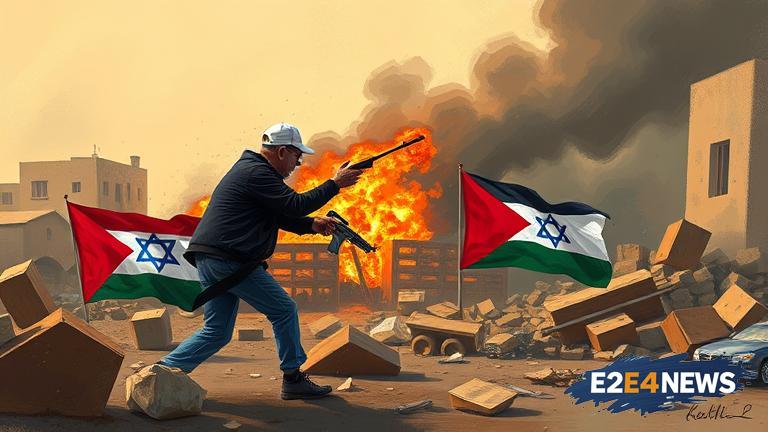The Israeli government and Palestinian militant groups in Gaza have agreed to a tentative ceasefire, following a series of intense clashes that resulted in significant loss of life and widespread destruction. The agreement, which was facilitated by Egyptian mediators, aims to bring a measure of stability to the region and pave the way for further negotiations. Despite the ceasefire, tensions remain high, with many on both sides expressing skepticism about the prospects for a lasting peace. The conflict in Gaza has been ongoing for decades, with the Israeli occupation and blockade of the territory being major points of contention. The recent escalation of violence was sparked by a series of incidents, including the killing of Palestinian militants by Israeli forces and the launch of rockets from Gaza into Israel. The Israeli military has responded with airstrikes and artillery bombardments, causing significant damage to infrastructure and civilian areas. The humanitarian situation in Gaza is dire, with many residents lacking access to basic necessities like food, water, and medical care. The international community has called for an end to the violence and a negotiated settlement to the conflict, but a lasting resolution remains elusive. The United States, a key ally of Israel, has been criticized for its role in the conflict, with many arguing that its support for the Israeli government has emboldened its actions in Gaza. The European Union and other international organizations have also been involved in efforts to broker a peace agreement, but so far, these efforts have been unsuccessful. The ceasefire agreement includes provisions for the release of hostages held by both sides, as well as the easing of restrictions on the movement of people and goods into and out of Gaza. However, many details of the agreement remain unclear, and it is uncertain whether it will hold. The Israeli government has faced criticism from some of its own citizens, who argue that the ceasefire does not go far enough in addressing the underlying issues driving the conflict. Meanwhile, Palestinian leaders have welcomed the agreement, but cautioned that it is only a first step towards a more comprehensive peace. The conflict in Gaza has significant regional and global implications, with the potential to destabilize the entire Middle East. The international community must continue to push for a negotiated settlement to the conflict, one that addresses the legitimate concerns and needs of all parties involved. A lasting peace will require significant concessions from both sides, as well as a commitment to respecting human rights and international law. The situation in Gaza remains precarious, and the international community must remain vigilant in its efforts to promote peace and stability in the region. The ceasefire agreement is a welcome development, but it is only the beginning of a long and difficult process. The road to peace will be fraught with challenges, but it is essential that all parties remain committed to finding a negotiated solution. The alternative is a continuation of the cycle of violence and bloodshed that has characterized the conflict for so long. The international community must also recognize the importance of addressing the root causes of the conflict, including the Israeli occupation and the blockade of Gaza. Only by addressing these underlying issues can a lasting peace be achieved. The people of Gaza and Israel deserve nothing less than a future free from violence and fear, and it is the responsibility of the international community to help make this vision a reality.





